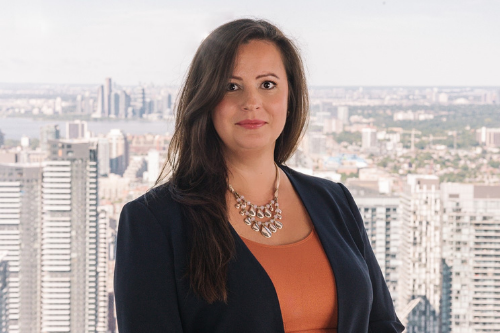

As organizations, such as manufacturers and commercial production facilities, gear up for reopening following the current wave of the COVID-19 pandemic, caution is always the rule - and safety starts from the top, said Lisa Leo (pictured), AVP Engineering for Aviva Canada, Global Corporate & Specialty.
“Business owners and management should review procedure guidelines and operation manuals, because if leaders are focused on making sure employees - and themselves - are informed on the proper measures, it trickles down and makes the whole environment safer,” said Leo. “You have to start with yourself when you’re reopening.”
To manage the risks inherent in opening back up following a closure or a period of running at lower capacity, Leo stresses a full walk-around should be conducted to ensure inventory is checked and machines are serviced. This walk-around is recommended throughout downtime on a weekly basis and after a seasonal shut down. It’s important to make sure equipment gets back up and running properly, and either a maintenance employee on staff or a specialist in the field should be brought in to do a commissioning of the equipment as recommended by the manufacturer.
For businesses that are already impacted by COVID-related disruptions, it is understandable that they could be looking at ways to reduce maintenance costs. Leo warns against this as many things can go wrong when equipment is not maintained regularly: motor seizing; a stop in production line that slows business causing loss of revenue; undetected heat spots leading to breakdown or potentially a fire. And if a business experiences a breakdown or loss in respect to pressure vessels, those can be catastrophic and potentially be an immediate threat to life.
“When business slows and equipment isn’t run to its full capacity or load potential, people often think that’s reason enough to forego regular maintenance - but in fact the opposite is true - it’s a key necessity,” Leo said.
Some companies took the opportunity to do renovations, upgrades or installations over periods of down time and “with that type of change there are always risks that pop up and accidents that can happen,” Leo warned, adding in these cases that they’ll need to prepare for new processes.
Another pandemic-related risk Leo is seeing more of lately is change of operation. As demand changes - for example the influx in the supply of masks in the market - many factories repurposed or completely changed out equipment to produce and sell new products, which means “we’re looking at a material change in risk and operations.” Whether the equipment is new, repurposed or just moved to a different location in the facility, it entails decommissioning and reinstallation — and exposes risks for a potential loss or breakdown if not done properly.
Even without changes in operation, many employees returning after being off for a long period of time may be a bit rusty when it comes to following safety measures. Leo’s advice is to check the operations manuals and operating procedure guidelines and do any refresh training that might be needed before employees start coming back into the facility.
“Just walking around a plant, a skilled engineer can pick up on slight variations of sounds coming from equipment that could trigger a red flag that something isn’t operating correctly,” Leo said. “It takes time for that sharpness to return, and retraining is the best option to avoid that type of risk.”
While at the onset of COVID-19 there was a drastic slowdown in Equipment Breakdown claims due to widespread temporary closures, Aviva is starting to see its claims frequency on par year-over-year with where it was prior to the pandemic. “Our goal is, and always has been, to be supportive in any way we can to help companies operate in a safe and responsible way,” Leo said.
Many businesses have been reevaluating their equipment breakdown policies during downtime, looking to improve coverage, costs or both. It’s important that customers do that regardless of whether or not they’ve had a material change in risk, such as changing of operations, Leo said, because they could have staffing reductions during slow times which could change revenues, payroll and the way production runs, or they might have done system upgrades like installing protective or monitoring equipment which could improve their coverages.
“It really comes down to open communication and having a strong broker relationship,” Leo said. “That way, as the customer is planning any changes and as they’re actually occurring in the business, the broker can make sure they have the best coverages in place for what the customer’s exposures are as they evolve.”
